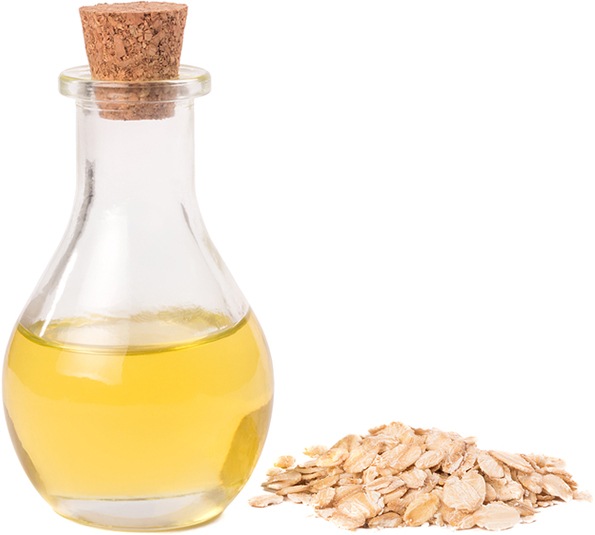
Health Benefits of Yeast for Horses
Yeast is a single celled microorganism with over 1,500 species.
The Saccharomyces cerevisiae strain of yeast is made up of several components that show benefits for the digestive health of horses, including:
- beta glucan
- mannan oligosaccharide
- nucleotides
BETA GLUCAN IN YEAST PROTECTS THE EQUINE GI TRACT
Beta glucan derived from yeast:
- protects the digestive system against harmful fungi
- controls the dangerous toxins released by harmful fungi (called mycotoxins)
Beta glucan is extracted from the inner cell wall of the yeast Saccharomyces cerevisiae. It is a highly efficient mycotoxin adsorbent. As such, it works to minimize, decontaminate and thus control the toxicity produced by fungi and molds ingested with unavoidably contaminated forage and feeds.
MANNAN OLIGOSACCHARIDES AND MARE AND FOAL IMMUNITY
Mannan oligosaccharides also aid immune response by enhancing plasma and colostral IgG and bile IgA antibody levels. These are central to the immunological link that occurs at birth when the mare transfers passive immunity to her foal. Transfer of immunity within the first 24 hours of the foal’s life is crucial for protection against pathogenic challenges, which may otherwise result in diarrhea, sepsis and even death.
MANNAN OLIGOSACCHARIDE BALANCES THE HINDGUT & SUPPORTS IMMUNITY
Mannan oligosaccharide is a component of yeast that:
- supports a balanced microflora
- reduces the risk of infection
- improves immune system response
Mannan oligosaccharide is extracted from the outer cell wall of Saccharomyces cerevisiae. Its primary role is the competitive blocking of bacterial lectins. Bacterial lectins have an affinity to bind with glycoproteins that are attached to the membrane of intestinal enterocytes (cells responsible for nutrient absorption). This is the first stage of infection.
Mannan mimics these intestinal glycoproteins, providing an alternative attachment site that competitively binds with pathogenic bacteria, rendering them unable to attach to the gut lining. Thus prevented from binding to the enterocytes, the bacteria are flushed from the system.
DIETARY NUCLEOTIDES INCREASE GROWTH OF ENTEROCYTES
Dietary nucleotides enhance the maturity and growth of normal enterocytes, the cells lining the gut and responsible for nutrient uptake and pathogen defense. Although the body can synthesize nucleotides de novo, the process uses more energy than scavenging them from dietary sources.
In addition to ongoing maintenance, cell division is critical for repairing damaged tissue, including ulcers. In times of stress or injury, dietary nucleotides may be indicated.
YEAST COMPONENTS HELP MAINTAIN DIGESTIVE HEALTH IN HORSES
These yeast components – beta glucan, mannan oligosaccharide and nucleotides – help obtain and maintain optimal digestive health for horses. The yeast extracts directly support the structure and functioning of the gut, while also facilitating better nutrient absorption, helping horses cope and thrive even in the face of modern feed and feed management routines.
Assess your horse’s health to determine if added digestive support may be beneficial for health and performance.
References
- Bell S, Goldman VM, Bistrian BR, et al. Effect of beta glucan from oats and yeast on serum lipids. Crit Rev Food Sci Nutr 1999;39:189-202 [review].
- Czop JK. The role of beta glucan receptors on blood and tissue leukocytes in phagocytosis and metabolic activation. Pathol Immunopahtol Res 1985;5:286-96.
- Estrada A, Yun CH, Van Kessel A, et al. Immunomodulatory activities of oat beta glucan in vitro and in vivo. Microbiol Immunol 1997;41:991-8
- Reid DM, Montoya M, et al. Expression of the beta glucan receptor, Dectin-1, on murine leukocytes in situ correlates with its function in pathogen recognition and reveals potential roles in leukocyte interactions. J Leukoc Biol 76(1):86-94.
- Bohm N, Kulicke W. Rheological studies of barley (1-3)(1-4) beta glucan in concentrated solution, Carbohydrate Research, 1999, 315, 293-301.
- Wursch P, Sunyer FX. The role of viscous soluble fiber in the metabolic control of diabetes. A review with special emphasis on cereals rich in beta glucan. Diabetes Care 20(11):1774-80.
- Ip WK, Lau YL. Role of mannose-binding lectin in the innate defense against Candida albicans: enhancement of complement activation, but lack of opsonic function, in phagocytosis by human dendritic cells. J Infect Dis 2004 Aug 1;190(3):632-40. Epub 2004 Jun 28.
- Swanson KS, Grieshop CM, Flickinger EA, Healy HP, Dawson KA, Merchen NR, Fahey GC Jr. Effects of supplemental fructooligosaccharides plus mannanoligosaccharides on immune function and ileal and fecal microbial populations in adult dogs. Arch Tierernahr. 2002 Aug;56(4):309-18.
- Bland EJ, Keshavarz T, Bucke C. The influence of small oligosaccharides on the immune system. Carbohydrate Research, vol 339, issue 10.
- Newman, K. 1994. Mannan-oligosaccharides: Natural polymers with significant impact on the gastrointestinal microflora and the immune system. Biotechnology in the Feed Industry, Nottingham University Press, Nottingham, UK, pp. 167-174.
- Davis E., Maxwell C., Kegley B., de Rodas B., Friesen K and Hellwig D., Efficacy of Mannan Oligosaccharide (Bio-Mos) Addition at Two Levels of Supplemental Copper on Performance and Immunocompetence of Early Weaned Pigs. Arkansas Animal Science Department Report 1999.
Take the next steps toward supporting your practice.
Let’s continue the conversation on equine GI health management. Let us know how we can help.
Where to Buy SUCCEED® Products
All SUCCEED products are available for purchase through veterinary supply distributors for you to resell to your clients.
Your clients may also purchase SUCCEED Digestive Conditioning Program from local and online retailers throughout the United States and Canada.

